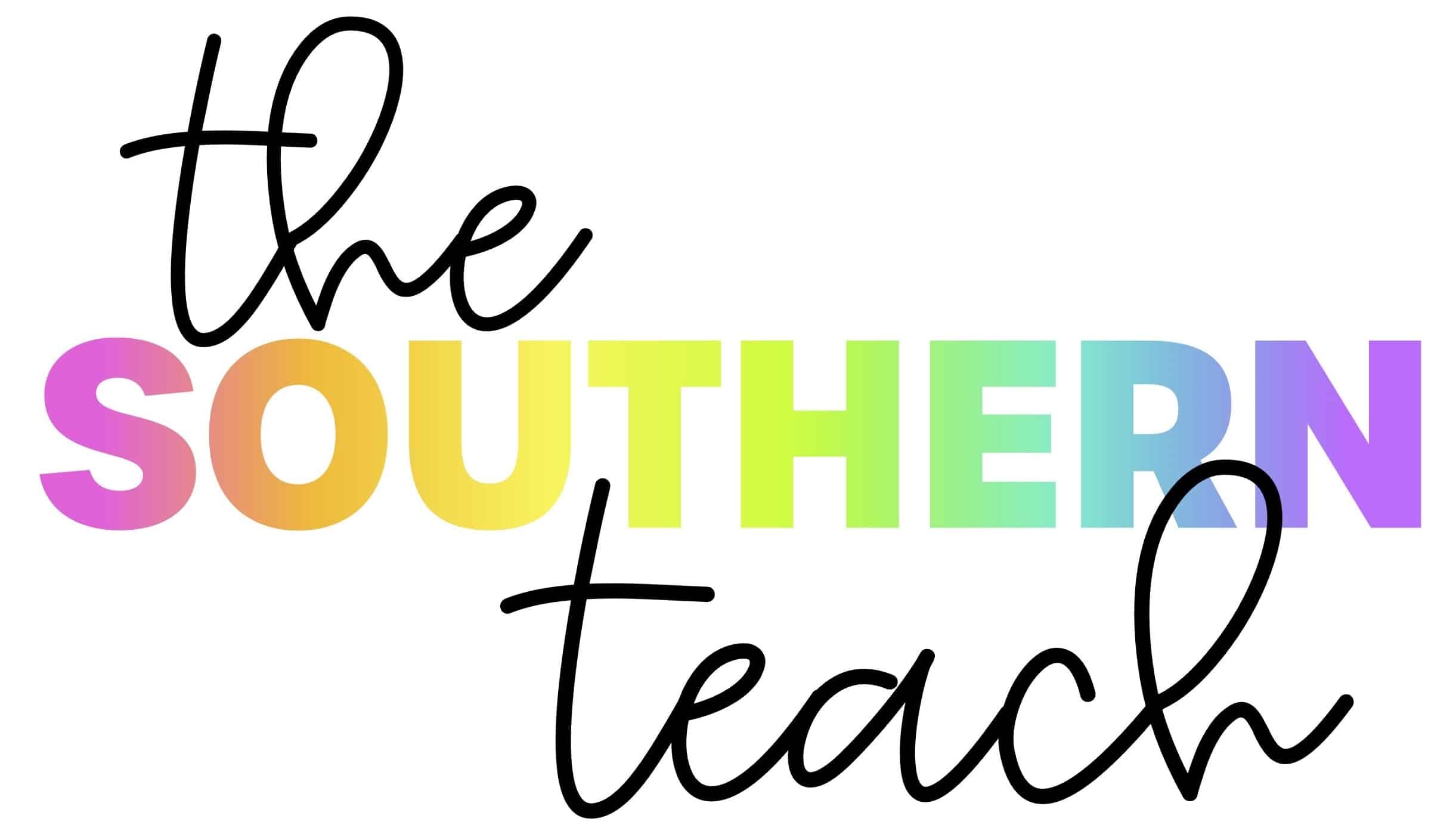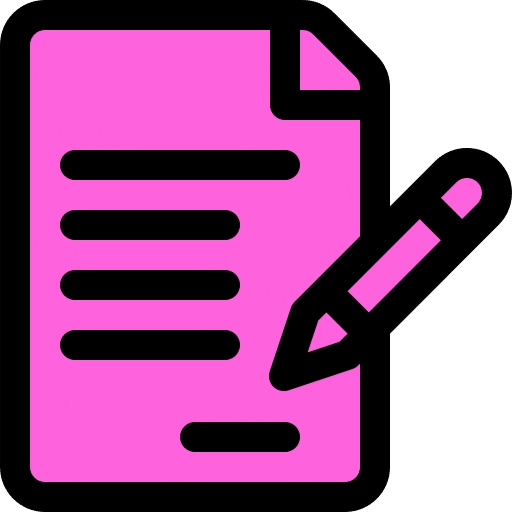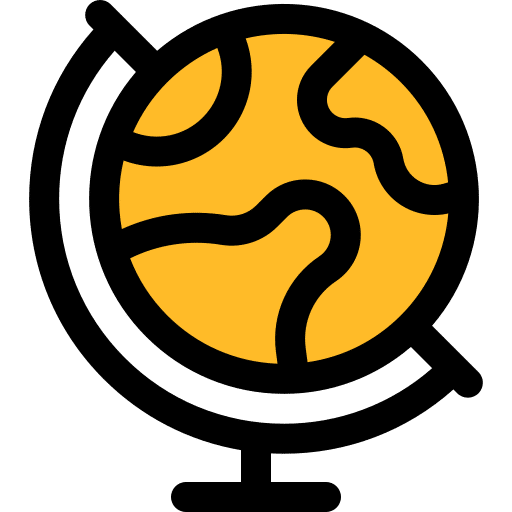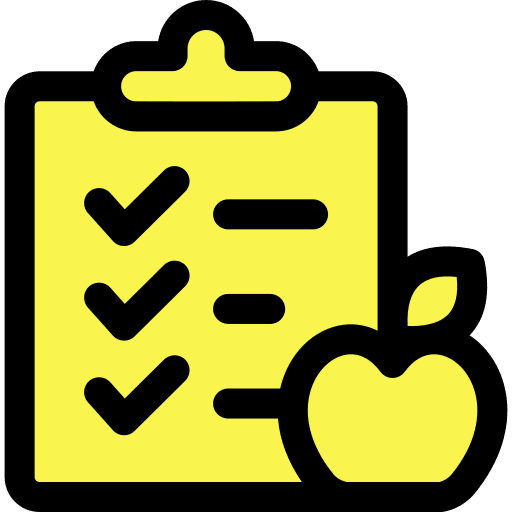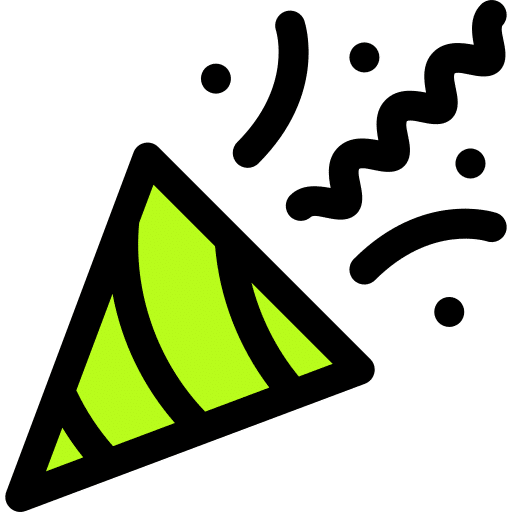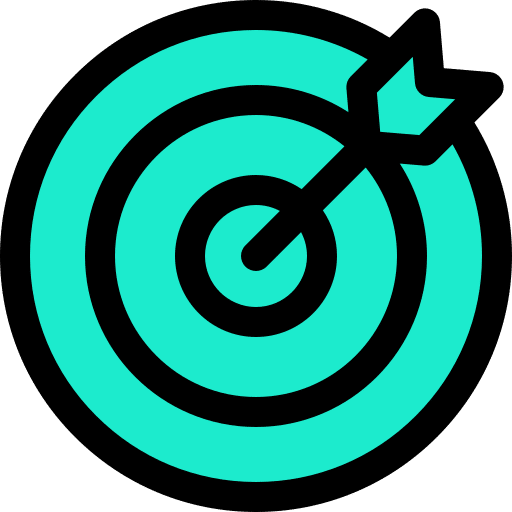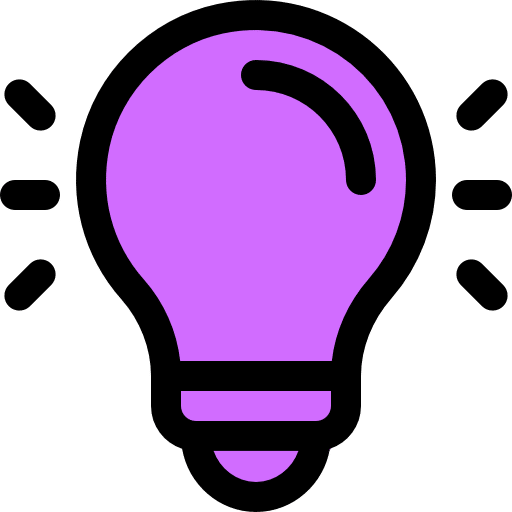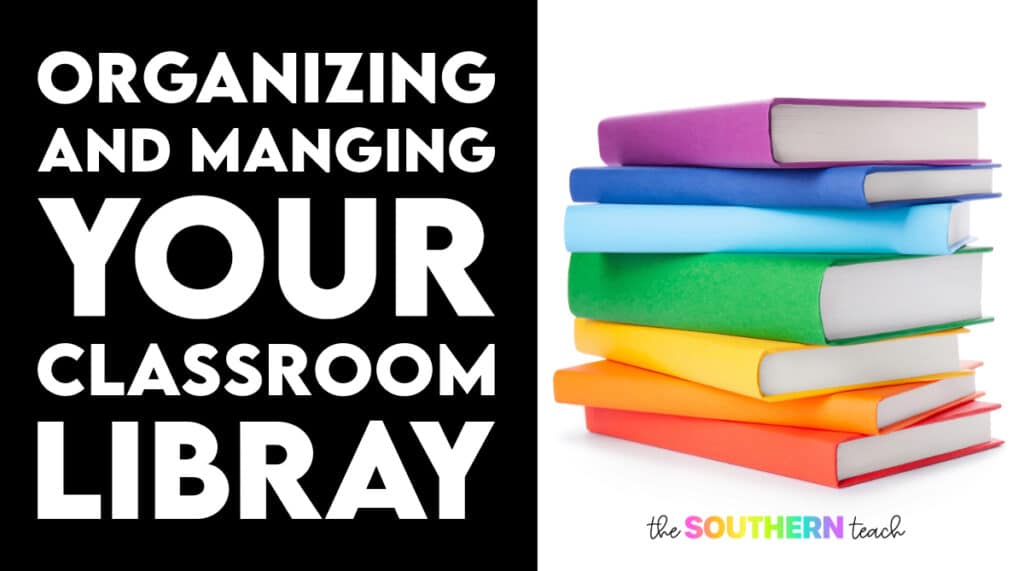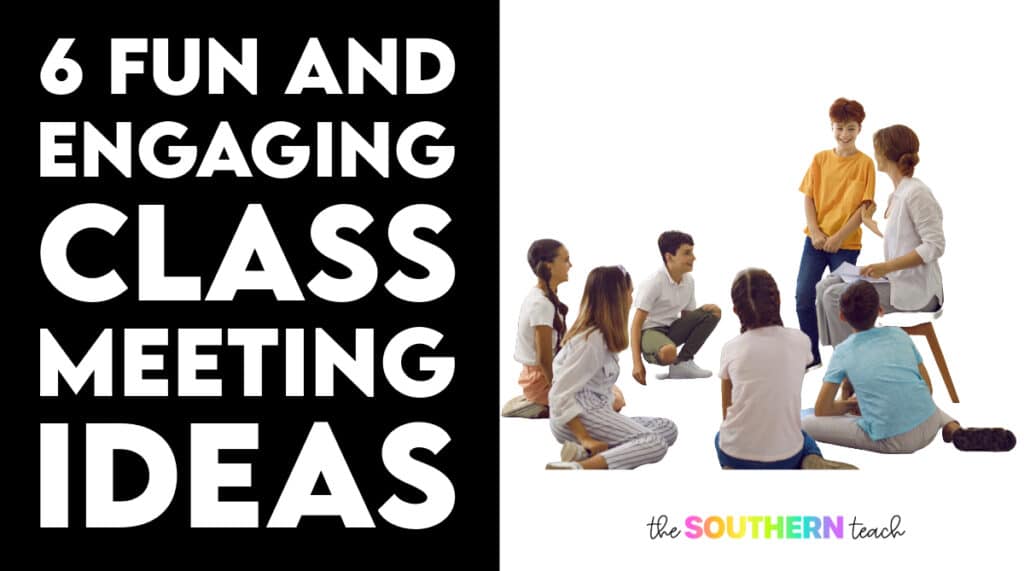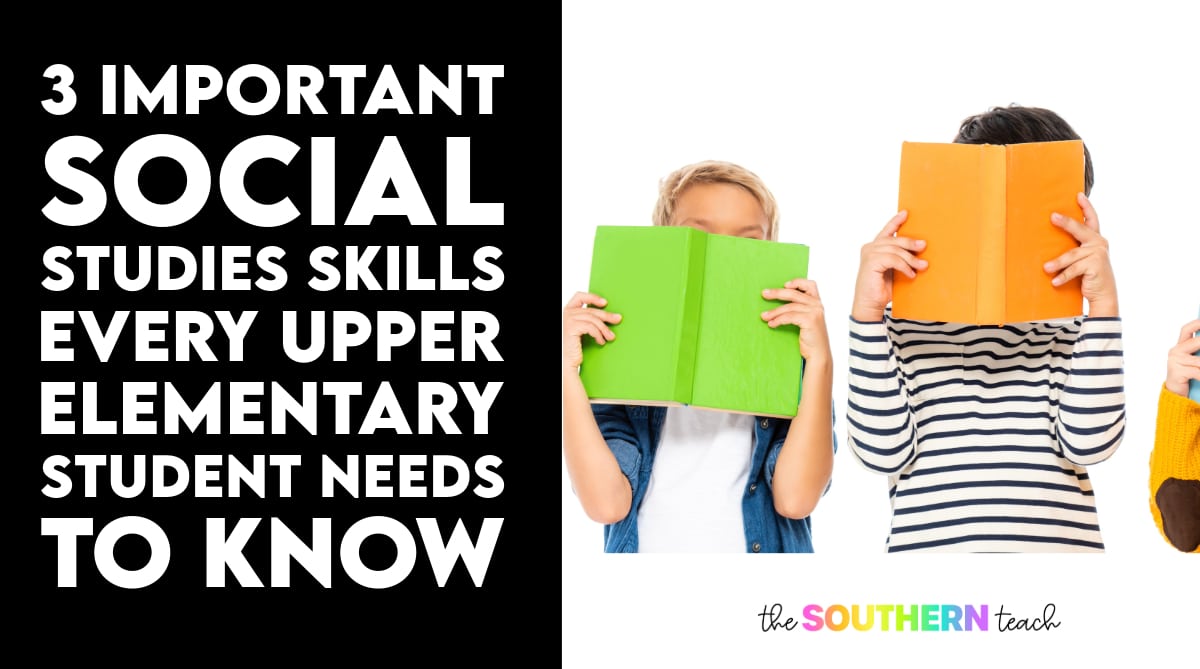
3 Important Social Studies Skills Every Upper Elementary Student Needs to Know
By Kirsten Hammond
Share This Post:
Social studies skills are an important part of a well-rounded education, providing students with an understanding of the world they live in and the people, cultures, and societies that make it up.
In upper elementary, students begin to develop a deeper understanding of social studies concepts and themes. Along with content knowledge from each of the 5 domains, there are three important social studies skills every upper elementary student needs to know.
By mastering these skills, students can become active and informed citizens who are able to engage with the world around them in meaningful ways.
Critical Thinking
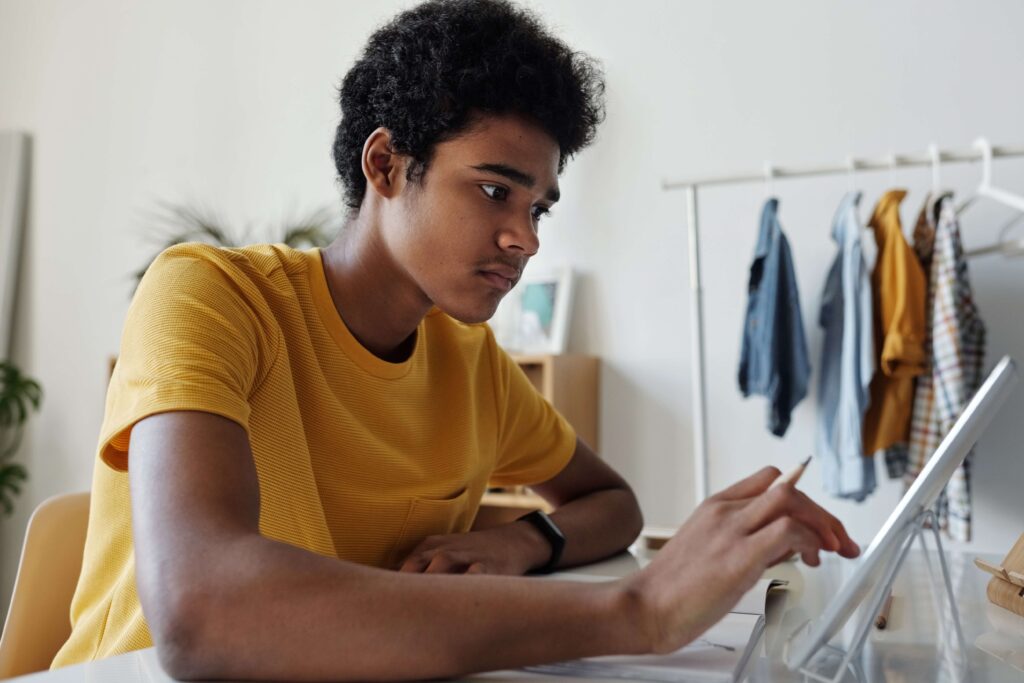
What is critical thinking?
Critical thinking is the active and intentional process of analyzing, evaluating, and interpreting information and ideas in a systematic and logical manner.
It involves questioning and challenging assumptions, reasoning, and evidence in order to make informed judgments and decisions.
How is critical thinking important?
Social studies education emphasizes the importance of critical thinking skills, which can be applied across various disciplines such as English language arts, math, and science.
Critical thinking involves questioning and analyzing information, evaluating evidence, and drawing logical conclusions based on facts.
Students can develop these skills by using primary and secondary sources, analyzing information through sequencing, interpreting visuals like maps or charts, and considering different perspectives on a topic or current event.
By teaching critical thinking, students can become better researchers, writers, and problem solvers.
Communication

What is communication?
Communication is the process of exchanging information, ideas, thoughts, and feelings, either verbally or non-verbally, between individuals or groups.
It involves effectively expressing oneself and actively listening and understanding others in order to convey messages clearly, establish rapport, and foster understanding.
How is communication important?
Social studies skills involve a range of communication abilities, including oral, written, and visual formats.
These skills are an essential component ELA curriculum and involve expressing ideas through various mediums, using appropriate terminology, and creating effective written and visual material. Some examples include communication through technology, writing an essay, and through reading a novel.
Developing strong communication skills is crucial for students’ social and emotional development, as it allows them to better articulate their thoughts and feelings.
Problem Solving
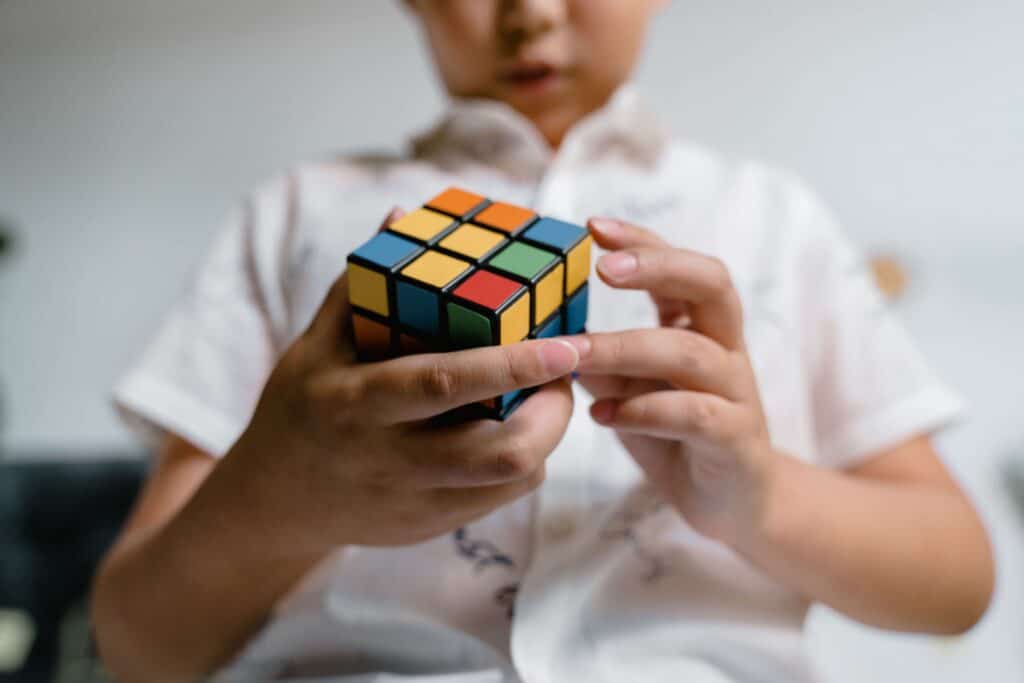
What is problem solving?
Problem solving is the cognitive process of finding solutions to specific challenges or obstacles. It involves identifying, analyzing, and defining a problem, brainstorming and evaluating potential solutions, and implementing and evaluating the chosen solution.
Problem solving often requires critical thinking, creativity, and strategic thinking for students to overcome difficulties and achieve desired outcomes.
How is problem solving important?
Social studies skills can range from a wide range of abilities, including problem-solving. While problem-solving is often associated with math and science, it is also a crucial skill in social studies.
By teaching students how to approach complex issues and analyze different perspectives, teachers can help students build their problem-solving and decision-making skills.
These skills are essential for navigating the complex social, political, and economic issues that students will encounter throughout their lives.
Let’s say students need to use social studies skills to think about different situations and scenarios. They can use the problem-solving process to find a solution to human overpopulation or natural hazards in a community.
Making Social Studies Skills Integrated With Other Subjects
It’s fairly easy to use critical thinking, communication, and problem solving social studies skills in other subjects as well! Here are some ideas:
Learn how you can have student integrate social studies skills (AND MUCH MORE) in the free upcoming Social Studies Bootcamp for Upper Elementary Teachers!
kirsten hammond
Kirsten is a former 3rd and 5th grade teacher who loves helping upper elementary teachers by creating resources and sharing ideas that are engaging, research-based, and TEKS-aligned. She is a work-from-home mama of 3 rambunctious little ones and loves running, true crime, and lots of coffee.
